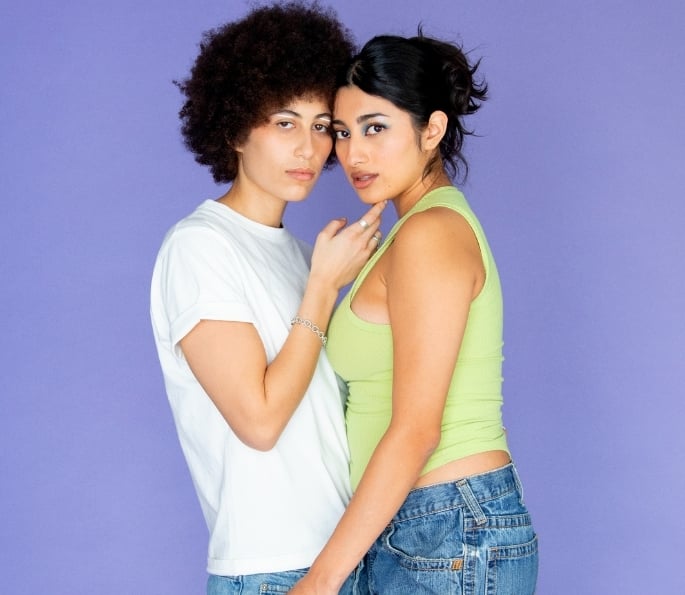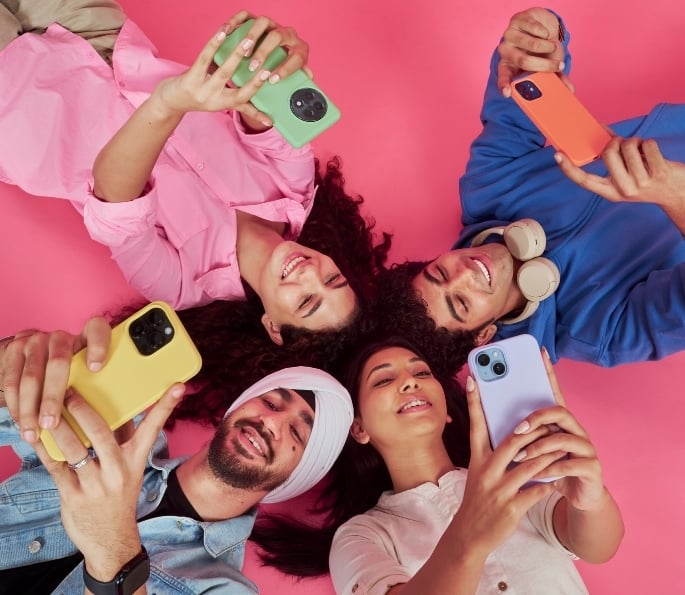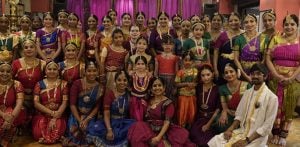Traditional gender roles are being challenged outright.
A quiet revolution is reshaping the way young South Asians approach love, identity, and commitment.
Gen Z is challenging traditional expectations, eschewing labels, rejecting rigid binaries, and choosing relationships that reflect who they are, not who they’re told to be.
This shift spans sexuality, gender, and dating culture.
From declining teen romances to rising identification with queer and fluid identities, Gen Z South Asians are writing a new script, one that embraces nuance, resists pressure, and centres personal authenticity.
Fixed terms like “boyfriend,” “wife,” or even “straight” are losing ground.
Instead, terms such as “situationship,” “non-binary,” and “value-based partnership” are gaining currency among young people carving out space on their terms.
Many still face cultural pressures, particularly around early commitment or marrying the “first love.”
But for a growing number, such expectations feel outdated.
They’re no longer settling to satisfy family tradition. They’re setting their standards.
This generation isn’t confused, it’s deliberate.
In choosing fluidity over labels, Gen Z South Asians are not rejecting love, but rather redefining it on their terms.
Gender and Sexuality Are No Longer Binary
 Gender and sexuality are no longer viewed through a binary lens by Gen Z.
Gender and sexuality are no longer viewed through a binary lens by Gen Z.
According to global data, 28% of Gen Z adults now identify as LGBTQ+, with higher numbers reported among South Asians in inclusive community studies.
The language around identity is shifting rapidly.
Terms like pansexual, gender-fluid, and non-binary are part of everyday vocabulary among younger South Asians.
The emphasis is on flexibility, not fixedness. Identity, many say, is something they move through, not something they’re confined by.
This is particularly evident among South Asians who describe presenting different facets of themselves in different social settings.
It’s less about picking one label and more about embracing fluidity.
The rise in queer South Asian visibility reflects both progress and tradition.
In parts of South Asia, third-gender identities have long existed.
Gen Z is reclaiming this cultural legacy and integrating it into modern queer frameworks.
While support for LGBTQ+ rights is high among Gen Z women, 65% back same-sex marriage, only 45% of Gen Z men do.
The generational shift is clear, but attitudes remain uneven.
Still, across platforms like Instagram and TikTok, queer Desi voices are louder, bolder, and more visible than ever.
For many, naming their identity isn’t the goal; living it, without explanation, is.
Dating Norms Are Being Rewritten
 The idea of teenage romance as a milestone is losing relevance.
The idea of teenage romance as a milestone is losing relevance.
Only 56% of Gen Z South Asians report having had a teen relationship, reflecting a broader move towards prioritising mental health, education, and personal growth.
Marriage, once seen as a non-negotiable goal, is increasingly viewed as a choice.
While 40% of Gen Z in Southeast Asia still value the institution, more are pursuing non-marital partnerships or delaying serious commitment altogether.
The terminology of relationships is also changing.
Traditional labels like “girlfriend” or “fiancé” are being swapped for looser terms like “partner” or “situationship”, relationships defined by connection rather than social obligation.
Dating app burnout and career pressures are also contributing to this shift.
Many Gen Z South Asians are delaying or avoiding dating entirely, citing emotional fatigue and a desire for more meaningful interactions.
Crucially, these changes don’t reflect apathy towards love.
Rather, they highlight a desire for deeper, more intentional relationships.
This generation isn’t dating less because it doesn’t care, but because it refuses to settle.
Young South Asians today are approaching love with caution, clarity, and consciousness.
They’re choosing substance over status and connection over convention.
Relationships Are Now Value-Driven, Not Tradition-Led
 Compatibility, for Gen Z South Asians, is no longer measured by caste, religion, or parental approval.
Compatibility, for Gen Z South Asians, is no longer measured by caste, religion, or parental approval.
Instead, it’s defined by emotional intimacy, shared values, and mutual respect, particularly among women who are pushing for more equitable dynamics.
This marks a significant generational departure.
While family expectations still loom large, many are choosing to define love on their terms, valuing transparency, vulnerability, and partnership over prescribed roles.
For many young women, traditional gender roles are being challenged outright.
The desire for equal relationships, where emotional labour is shared and voices are heard, is stronger than ever.
Cultural pressure persists, especially around marrying early or committing to a first relationship.
These expectations often conflict with the realities of modern dating, leading some to keep relationships hidden or undefined.
Yet, through open dialogue and digital storytelling, Gen Z South Asians are reshaping relationship narratives.
Whether it’s on a podcast, a TikTok reel, or a private group chat, discussions around love, boundaries, and identity are more honest than ever.
The message is clear: connection should not come at the cost of authenticity.
And for this generation, the right match is one rooted in shared values, not shared surnames.
Online Spaces Are Fueling Offline Confidence
 Digital platforms have become powerful tools for Gen Z South Asians navigating identity, desire, and social norms.
Digital platforms have become powerful tools for Gen Z South Asians navigating identity, desire, and social norms.
Online activism, queer education, and feminist discourse are increasingly shaping how this generation understands and expresses love.
Many credit creators on Instagram and TikTok for helping them challenge internalised shame or heteronormative beliefs.
These platforms offer validation, visibility, and, importantly, a sense of community.
This online openness often contrasts with offline silence.
Some young South Asians feel freer expressing their identity online than they do at home.
The internet becomes a safe space to explore what isn’t yet permitted in reality.
Feminist and queer creators are also deconstructing harmful relationship dynamics, calling out misogyny, and redefining what intimacy looks like.
Their impact goes beyond awareness. It helps build new relational standards.
The duality of living between cultures is real. Many are still learning how to merge public courage with private caution.
But the ability to hold both is what defines this generation.
Through memes, reels, and honest reflections, Gen Z South Asians are documenting their truths.
And in doing so, they’re reshaping the cultural script, one post at a time.
Whether through queer identities, delayed partnerships, or label-free dating, this generation is choosing what fits, not what’s forced.
Yes, family pressures remain. But so does the courage to resist.
Gen Z isn’t afraid to embrace ambiguity, and that’s what makes their approach to love both radical and refreshing.
They aren’t confused. They’re conscious. In refusing labels, they are not lost; they are leading.
And in that refusal, they’re building something powerful: a future for South Asian love that is expansive, inclusive, and entirely their own.






























































